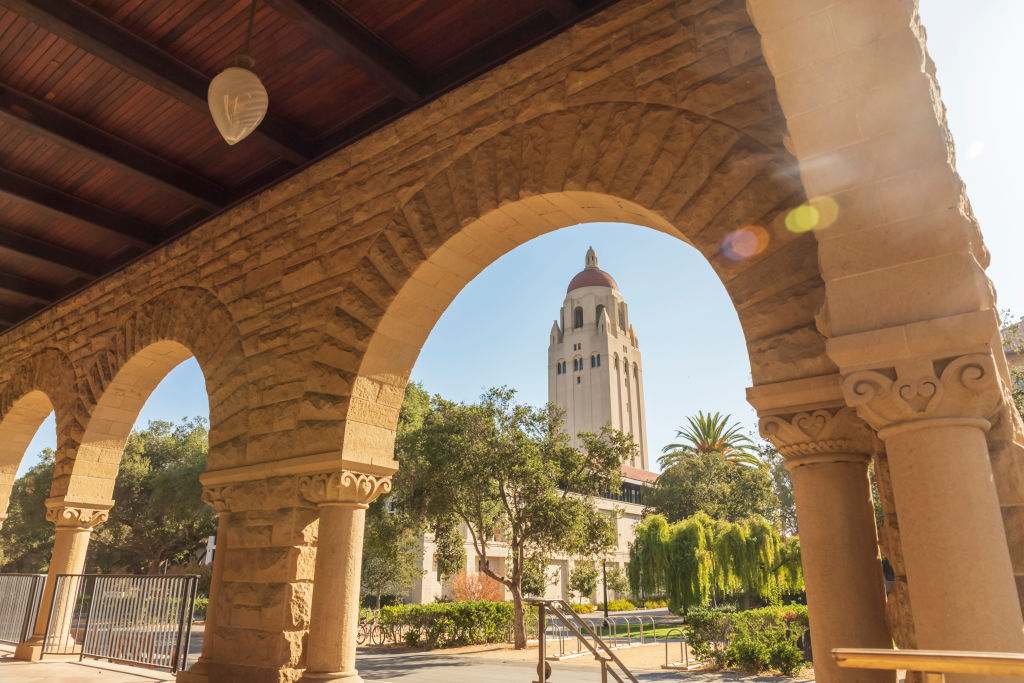Stanford Apologizes for Limiting Jewish Admissions in the 1950s
 Credit: David Madison/Contributor / Getty Images Sport
Credit: David Madison/Contributor / Getty Images Sport- A Stanford task force found that Jewish student enrollments decreased from two Southern California high schools with a high Jewish population.
- Stanford President Marc Tessier-Lavigne said the university will improve its relationship with Hillel, add anti-bias trainings about antisemitism, and create an advisory committee.
- The report is part of Stanford’s efforts to confront parts of its past.
Stanford University President Marc Tessier-Lavigne apologized last week to Jewish Americans for past practices that restricted the school’s admission of Jewish students.
Stanford created an advisory task force earlier this year to investigate historical Jewish admissions and experiences after allegations that Stanford limited the admission of Jewish students in the 1950s.
The task force examined admissions policies and practices to address the antisemitic allegations. It also made recommendations on how to enhance life for Jewish students on campus.
The allegations originated from Charles Petersen’s August 2021 exposé: “How I Discovered Stanford’s Jewish Quota.” After combing through Stanford’s admissions archives, Petersen said he found evidence of a Jewish quota
in the 1950s.
According to the president’s letter, the task force not only found that these allegations were true, but it also found that Stanford denied them for years.
A 1953 university memo expressed concern about the number of Jewish students admitted to Stanford, the task force found. A steep drop in enrollment to Stanford from two Southern California schools with a large Jewish population followed.
Tessier-Lavigne said this was evidence that the university suppressed Jewish student admissions. It’s unclear how long this lasted, he said, but it dissuaded Jewish students from applying years after.
On behalf of Stanford University I wish to apologize to the Jewish community, and to our entire university community, both for the actions documented in this report to suppress the admission of Jewish students in the 1950s and for the university’s denials of those actions in the period that followed,
Tessier-Lavigne said in a statement.
These actions were wrong. They were damaging. And they were unacknowledged for too long. Today, we must work to do better, not only to atone for the wrongs of the past, but to ensure the supportive and bias-free experience for members of our Jewish community that we seek for all members of our Stanford community.
Stanford’s Commitment to Improving Jewish Student Life
Tessier-Lavigne said the university is embracing the task force’s recommendations to improve Jewish student life on campus with six implementations:
- Ongoing advisory committee: The task force initially recommended a study of Jewish life on campus, but the university will instead create a committee of students, staff, faculty, and alums. The committee will work with the Office of the Vice Provost for Institutional Equity, Access, and Community and the Office for Religious and Spiritual Life to improve and care for Jewish student life.
- Education and training: Stanford will offer antisemitism trainings alongside other anti-bias trainings.
- ASSU resolution: The Associated Students of Stanford University will implement a 2019 resolution adopted by the Undergraduate Senate to combat antisemitism.
- Jewish High Holidays: The university apologized that the start of the fall quarter coincided with the beginning of the Jewish New Year, Rosh Hashanah. The university is looking at future calendars to prevent it from happening again.
- Housing and dining: The university will improve resources and awareness for the Glatt Kosher Dining Program, a meal program created from a partnership between the Office for Religious and Spiritual Life, Hillel, and Resident Education.
- University relationship with Hillel: Although Hillel is not a university organization, Stanford will clarify and improve its relationship with the group.
Tessier-Lavigne said Stanford is confident that the university no longer practices these antisemitic policies.
We asked the members of the task force to investigate this serious and sensitive matter through scholarly inquiry, with an unflinching commitment to examining the historical record as they found it,
said Tessier-Lavigne. They have done so, and they have provided essential guidance for the university’s ongoing and necessary efforts to support the members of our Jewish community.